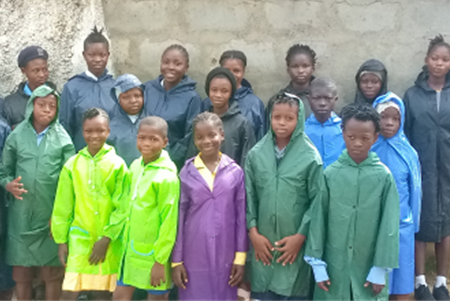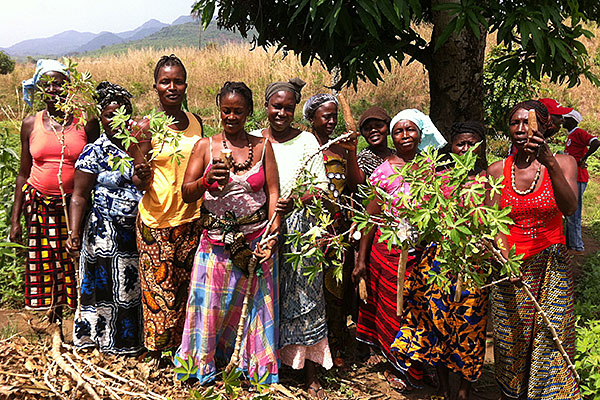Policies
The Waterloo Partnership Adults at Risk & Child Safeguarding Policy
Definitions – for this document
An adult at risk:
Is a person who is or may be in need of community care services by reason of mental or other disability, age or illness; and who is or may be unable to take care of him or herself, or unable to protect him or herself against significant harm or exploitation.
Vulnerable adults are entitled to: privacy; be treated with dignity; lead an independent life and to be enabled to do so; be able to choose how they lead their lives; the protection of the law; have their rights upheld regardless of ethnic origin, gender, sexuality, impairment or disability, age, religion or cultural background.
Child:
Describes a child aged 0-17 years old.
POLICY STATEMENT
We seek to ensure that all our team members are aware of what is required from them under the vulnerable adult and child protection policy and make sure that it is practised at all times.
It is the responsibility of each one of us to prevent the physical, sexual or emotional abuse and neglect of vulnerable adults and children.
We commit ourselves to co-operate fully with the appropriate statutory services when they are conducting official investigation into physical, emotional or sexual abuse and neglect of vulnerable adults, children or young people (by an adult or young person).
This statement is to be brought to the attention of all trustees, members and volunteers when they join, as part of their induction programme. Any amendments will be brought to the attention of all trustees by the safeguarding lead trustee whose job it is to be cascaded to the whole charity team.
Implementation
The Waterloo Partnership shall:
Plan its work so as to minimise situations where the abuse of vulnerable adults and children might occur.
Although the number of people who actively seek to abuse vulnerable adults and children is very small The Waterloo Partnership can reduce opportunities for abuse in various ways. We will, for instance:
• Ensure that there is adequate supervision for all vulnerable adults and children.
• Ensure that any vulnerable adult or child working with The Waterloo Partnership is aware of who they can talk to if they have concerns.
• Arrange that an adult is not left alone with a child except in an emergency where there is little or no opportunity of the activity being observed by others. This good practice can be of as much benefit to the adult as to the child.
• Make sure the designated person has correct and up to date training.
Designated person and their role
The Waterloo Partnership has a designated person based in both countries who is responsible for dealing with any concerns about the protection of vulnerable adults or children.
The designated person for The Waterloo Partnership UK is Anne Magennis. The designated person in Sierra Leone is Iris Thomas.
The designated person will be available for vulnerable adults and children to speak with should they feel the need to talk with someone about an incident which has happened whilst working for or receiving assistance from The Waterloo Partnership, particularly if they feel they have been physically, sexually or emotionally abused or neglected.
Recording
The designated person will make notes and keep confidential records of any disclosure or concerns they or another team member has and seek advice from the Social Services Department or the Police.
Whistle blowers
Trustees and members are encouraged to take action when suspicious that abuse is occurring. The Waterloo Partnership will respect and not penalise those who stand up for anyone who is suspected of being abused.
Remember
It is important that everyone in The Waterloo Partnership is aware that the person who first encounters a case of alleged or suspected abuse is not responsible for deciding whether or not abuse has occurred. That is a task for the professional vulnerable adult and child protection agencies following a referral to them of concern about someone.
Applying agreed procedures for protecting vulnerable adults and children to all workers
If any trustee or member has concerns, please raise them with the designated person. If it is brought to the attention of the designated person and not adequately dealt with the next step is to talk to Social Services/the Police as a private citizen to discuss your concerns.
Disclosure of Information
There is a difference between confidentiality and secrecy. All personal and delicate information disclosed to us is confidential, but may not always be secret.
Personal and delicate information about staff and volunteers will be:
• Confidential to The Waterloo Partnership and can be shared with staff and volunteers on a ‘need to know basis’ and
• Can be shared with another agency when:
– Permission is given by the person about whom the information is held.
– There is an overriding justification to share information without the person’s consent.
– The law requires it.
Policy Review
This policy was reviewed in June 2019 and safeguarding has been undertaken by volunteers working the Waterloo Partnership Sierra Leone, and at least annually or whenever there are any legislative changes or amendments to guidance issued by relevant statutory bodies.
It will be reviewed again in Jan 2022.


